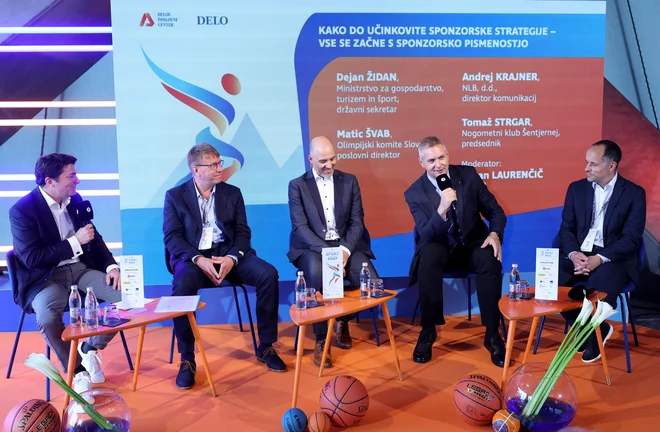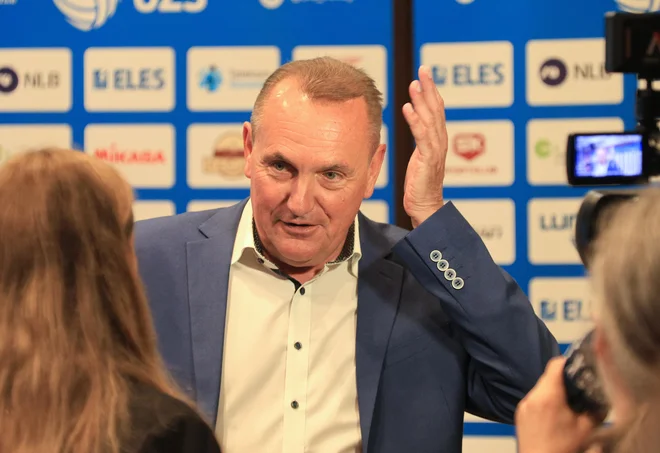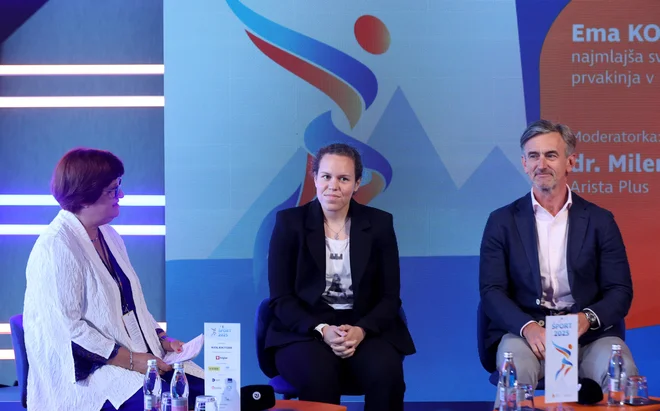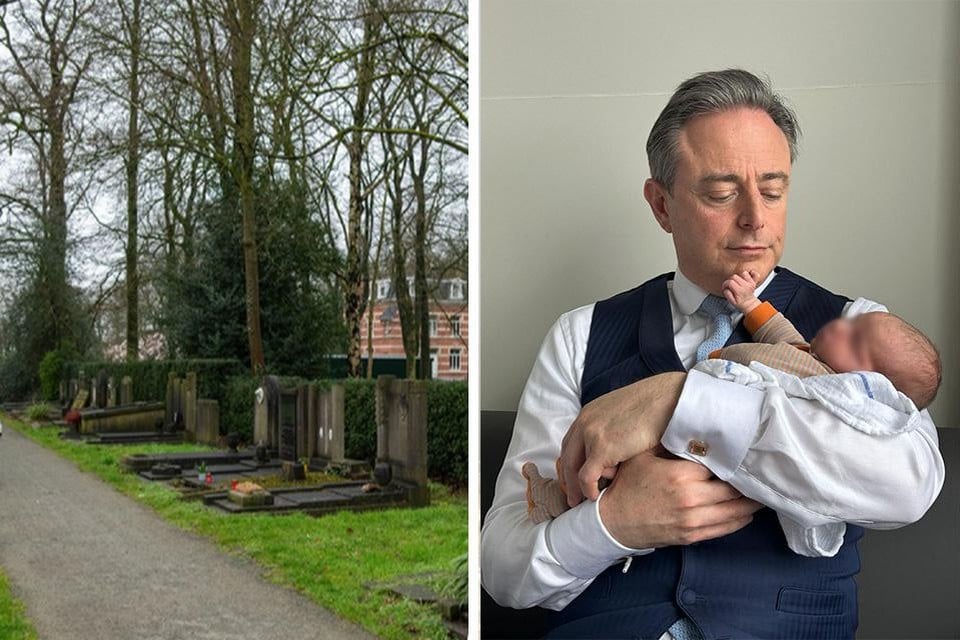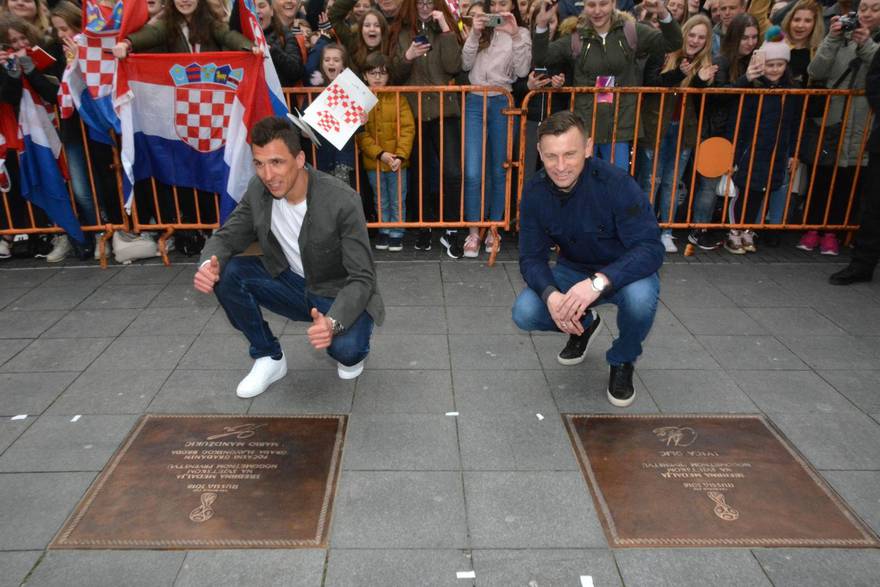Perfectionism One of the main factors for burnout in athletes
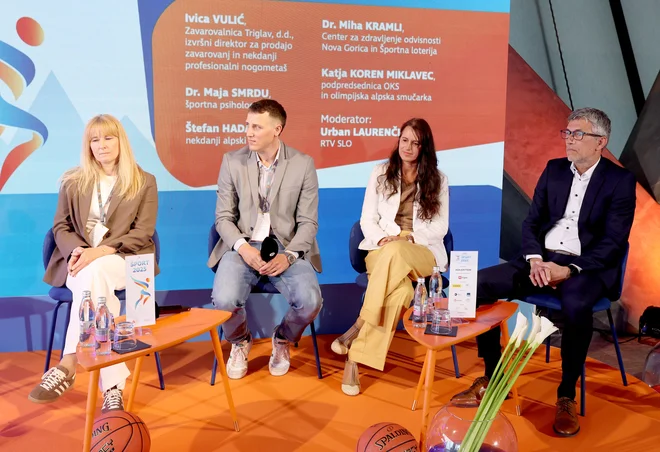
The topic of the first roundtable at Del’s Business Conference Sports 2025 was the removal of taboos in sports – sports as moving borders. Moderator Urban Laurenčič helped the taboos to break interesting guests.
For athletes, talking about burnout, which often leads to injuries, is uncomfortable in public. Stefan Hadalina former alpine skier, talked about how to pick up for mistakes and challenges. Burnout is a taboo topic in sports, as people burn in the desire to be the best – and according to his observations, there is more and more in top sport. “Now I’m fine and in the process when I return to the rails so I can work normally – I am a personal trainer. I was in very severe burnout for almost 2.5 years, where I tried to adapt all other processes within the process of top sport to work at a top level – but in the end I had to make such a difficult decision to end my sports career prematurely. «
And what put him into the biggest problems? “It was perfectionism, top quality. Everyone has to discover what is the cause of burnout. One time it gets to the point of breaking when you get into the wall, as you have not allowed you to leave failure – this happened to me. Anxiety has emerged when you can no longer concentrate, you start to doubt your abilities. «
Asked if he had enough first aid with the coaches and whether it is reasonable to educate coaches to detect these problems in a timely manner, Hadalin stressed that support had relatively good and also understanding about the coaching profession. “But it is a problem, because these are situations where more expertise is needed, more experience. It would be good if the coaches had this knowledge before, for selections, e.g. From 14 years onwards, and in this way it could be held in this process, and to teach him to understand the source of this energy or want of superior, and to change it in a way that turns it into the right motives and to learn the action that is most appropriate for him. » details, keep them on their way and walk on.
Business Conference Sports: Katja Koren Miklavec, Stefan Hadalin, Maja Smrdu and Ivica Vulić discussed the removal of taboos in sports. Photo: Blaž Samec/Work
Where is the border between the privacy of athletes
Ivica VulicCEO for the sale of insurance at Zavarovalnica Triglav and a former professional footballer, presented, among other things, the campaign – #zvamismo in victories and defeats, which they take with the NHS. « Together with our colleagues, we recognized that the transition from a professional career is extremely difficult, so we organize various workshops, from a career career, about financial literacy, as athletes should also be educated in this field. »
He recalled his own 1997 experience when he was a Slovenian national team when he broke his ankle at the height of his football career. “They immediately offered me psychological help, but I rejected it to overcome it myself, but I couldn’t do it. Fortunately, I studied at work, so that this path has turned out well, but not to others. « , Adding that it was essential to talk about successful athletes who went bankrupt today – especially why it happened – because they probably didn’t talk about it, so it should be discussed.
Where is the privacy limit – athletes appreciate their privacy, and sponsors with new technological receipts, they require more and more digitization. Where is this border that the athlete has to build? “It’s hard to set this border, I agree. However, the fact is that we are in the age of digitization, that expectations are also on this sphere. However, we should not forget about parents who play an important role, especially in arousing expectations, also because of their own unfulfilled desires – the child suffers very much if he disappoints his father, for example, « warned Vulic, adding that the athlete can always succeed, even if he comes to the market a little later. « Sport is such a guarantee that you can realize this in another career. »
When are you a winner
Dr. Maja Smrdua sports psychologist, however, emphasized that the winner is the one who can master his emotions, thoughts, orientation in his head. And how is cognitive burnout? “For athletes, this can be a decline in motivation, emotional exhaustion, it is difficult to get into training, the matches are too burdensome and the like, and so you can fall into a vicious circle.” Emotional burnout is manifested by hardering and the like. And one of the main factors for burnout in athletes is perfectionism. “To improve the situation, it is important not to go too much through themselves and to begin to recognize burnout early; In addition, it is important to relax techniques, how to stop in time and not go beyond the border. «
Is finding perfection dependence that can plunge an athlete into trouble? “Perfectionism is not addiction, but a personality feature, because we want to be better, but we can never achieve this perfectness. Social media can also help. In Slovenia, however, we are very demanding of our athletes, as it is 4th. The city is defeat, so there is a major demand for athletes. «
Dr. Maja Smrdu also recalled social networks that can immediately ‘pull the individual into this’, so they teach top athletes not to watch profiles on social networks before the matches. It is also possible that someone else can take on these profiles and athletes themselves do not burden themselves. “We learn how to limit ourselves to social networking, how to deal with criticisms and the like. Sports psychologists are here to support and not to resolve trauma. We also have to look out for coaches because they are the first contact with the athlete – if the coach is not stressed, then the success of the athletes will be better. «
For an athlete transition to everyday rhythm shock
Katja Koren Miklavec, Vice -President of the OKS and Olympic Alpine Skier, presented why the transition to the everyday rhythm for the athlete is a shock. “In my time, we didn’t deal with what others thought about us at the time because we were away from it. Maybe only in home games, as there was no other disruptor from the public. The Olympics were also like that – there was not so much documentation, etc., but now there is a lot of data. Sometimes the weakness was because there was no communication when you were not doing well. At that time, you need someone and teammates will not help you at such moments, even the coaches are not it. But they can be friends, parents …. Sometimes you had to deal with defeats alone, today you can have someone in the moment on the line. And it was a handicap of poor communication. «
Asked what they can do at the OKS as an umbrella organization, Katja Koren Miklavec replied that they can set guidelines, but they should also join the industry and help athletes in the second careers. “An important matter is the system career center – we have to confirm the proposal in the National Assembly – that this will also be systematically funded and that athletes will be able to turn to it during their career. Like Stefan Hadalin, I had to finish my career quickly and then you don’t know how to go. I was lucky to have been so young that I threw myself in my studies and got a job. «
He added that as an athlete it is harder to get a job because you have no experience, so she had a door closed everywhere. “Despite what all athletes do for Slovenia. Also, because of this negative experience, I have excluded for a few years from sports. Therefore, it is our key task to help athletes when they are not doing well, as they usually do not have the power they need. The President of the OKS listens to us. «
And her thought for young athletes: “It is very important that you are in sports for as long as you do it! As soon as it appears that you are no longer doing something with pleasure, it is better not to do it anymore. Athletes’ career can end very quickly and instead of playing games, it is better for young athletes to teach this time. «

